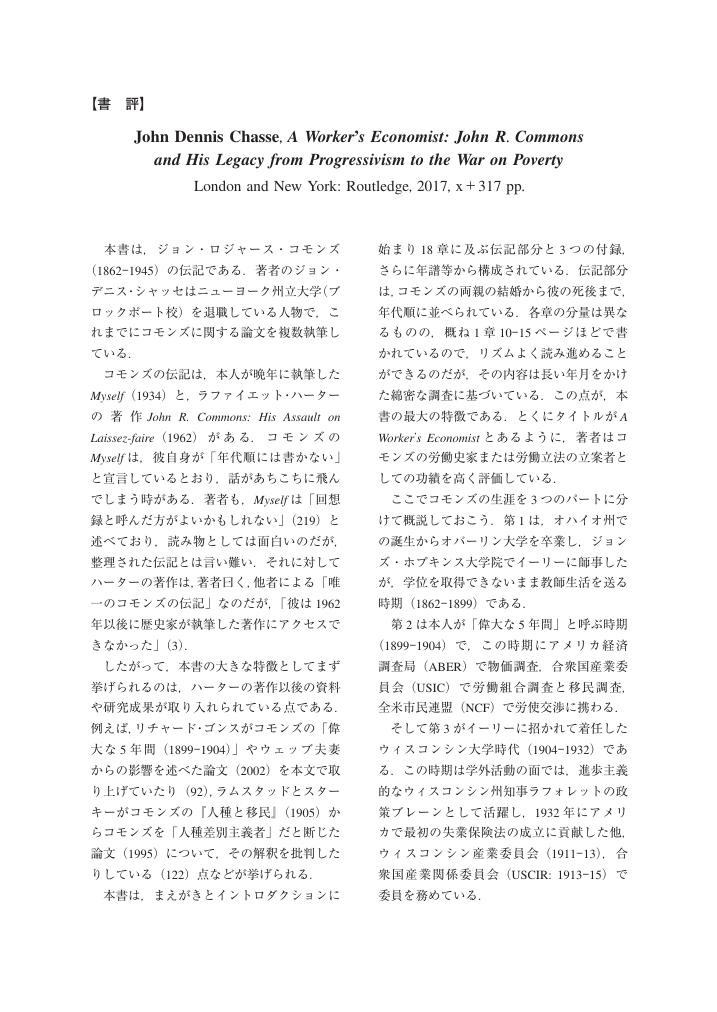- 著者
- 高橋 真悟
- 出版者
- 経済学史学会
- 雑誌
- 経済学史研究 (ISSN:18803164)
- 巻号頁・発行日
- vol.61, no.1, pp.131-132, 2019 (Released:2019-10-14)
1 0 0 0 OA J. R. コモンズの「取引」経済学
- 著者
- 高橋 真悟
- 出版者
- The Japanease Society for the History of Economic Thought
- 雑誌
- 経済学史研究 (ISSN:18803164)
- 巻号頁・発行日
- vol.48, no.1, pp.16-31, 2006-06-30 (Released:2010-08-05)
- 参考文献数
- 44
The purpose of this paper is to consider J. R. Commons's (1862-1945) institutional economics as “transaction economics.” The concept of transaction is at the core of his institutional theory, and it influenced the ideas in the new-institutional economics. Even though the concept of transaction has long been recognized as crucial to Commons's institutional theory, it has not been systematically studied until recently. Here I attempt to analyze Commons's institutional theory by considering it in terms of transaction, and transaction cost.First, in Section II, I scrutinize Commons's construction of transaction and in Section III its features. Transaction does not refer to “exchange, ” which implies a physical transfer; rather, it implies a legal transfer of ownership. This concept is characterized by three features of Commons's institutional economics: (1) the volitional aspect based on human action, (2) three types of transactions, determined by the legal relationship, and (3) transaction comprising a minimum of five members-two buyers, two sellers, and one arbitrator.Second, in Section IV, I offer a reinterpretation of Commons's institutional economics as transaction economics. Using the theoretical construct of transaction, I analyze at micro and macro levels the legal, economic, and ethical aspects of Commons's theory. Then in Section V, I compare transaction economics with transaction cost economics as propounded by O. E. Williamson, who drew on the work of Commons. The comparison reveals the fundamental differences between the two and the uniqueness of Commons's theory.Finally, I consider in Section VI the contemporary implications of transaction economics. I conclude that transaction economics is premised upon a unique system that differentiates it from transaction cost economics, and I argue that it provides an explanation for the legal, economic, and ethical relationships between the individual and society today.
